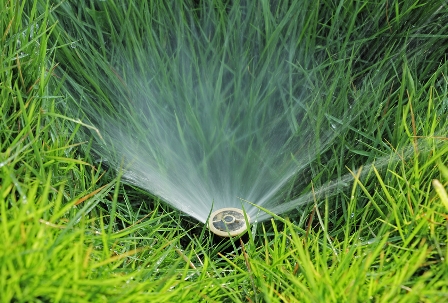Striving to be Water Responsible All Year Long

Did you know that GSA and the federal government have some of the most ambitious sustainability goals found? Conserving water is important. Why? Because it keeps water clean and pure and conserves the environment. Also, our water supply is not endless. About two percent of earth’s freshwater is locked in glaciers and ice caps, while 97 percent is salt water. That means that only one percent of water on earth is available for drinking.
The DFC has worked diligently to reduce the amount of water it uses. As a matter of fact, the DFC reduced potable water usage by 52 percent in FY2015 over the 2007 baseline. GSA is working on a number of sustainable activities including lowering our:
- Energy use
- Vehicle emissions
- And our water use to be leaders in the sustainability area and to provide value, efficiency and cost savings to taxpayers.
In Colorado, water is always a hot topic as we live in a semi-arid climate that is prone to drought. Water impacts everyone and everything, and the issue can vary from important to crucial depending on the rainfall amount in just a few short weeks. Our agency teamed up with Denver Water so we could lower our water usage further through conservation and smart irrigation techniques that will have a positive impact on the Denver Federal Center (DFC).
According to Denver Water, this past winter and spring has seen an adequate supply of water, but this has not always been the case. In the past, as recently as 2012, Denver has been impacted in a drought that affects our water supply. By creating a culture of conservation, where we are aware of water use all the time and incorporate conservation and water-saving best practices into our daily routines, we can maintain our water supply and prepare for the next dry period.
Colorado is a headwaters state, where most of our rain and snow flows downstream and is a source of water for other states through our major rivers. The current drought in California is depleting water reserves in Lake Powell that flow from the Colorado River and could impact us in the future through further water restrictions because so many people depend on Colorado’s water downstream. The conservation of our water will help maintain and replenish water reserves and provide relief for everyone downstream. See Denver water’s article discussing the headwaters issue in more depth.
Best practices that Denver Water promotes, include water efficient landscapes and irrigation practices which we are doing at the DFC. We are identifying landscape that is difficult to maintain, converting into xeriscape or water-efficient pollinator gardens when funds are available. These landscapes require minimal irrigation (usually to establish plants) or drip irrigation instead of traditional irrigation systems that require substantially more water. The DFC is also following Denver Water’s irrigation rules which limit the number of days to irrigate and the watering times.
Our goal is to reduce water consumption while providing beautiful, water efficient landscape to our building tenants. Look around our campus for xeriscaping and natural grassland habitat that decreases irrigation needs.

 U.S. General Services Administration
U.S. General Services Administration